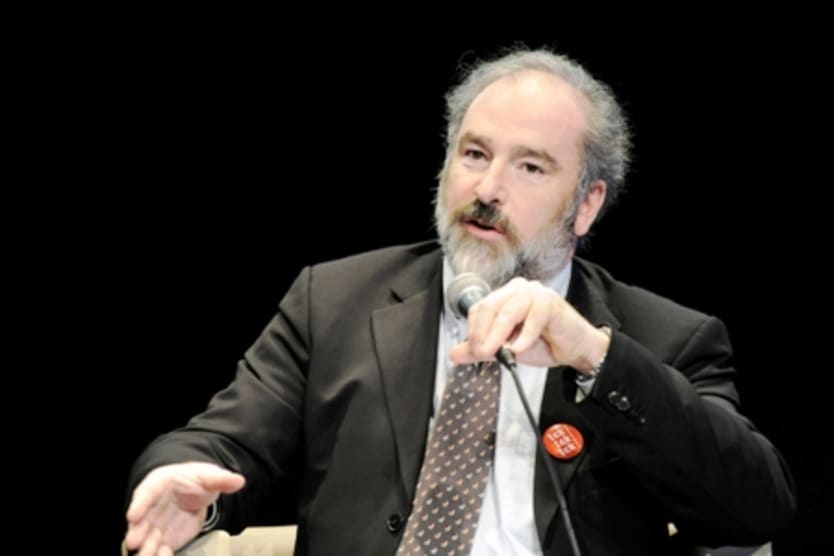
Oxfam International worries about climate change. And it believes the fight against global warming could divest funding from development initiatives.
The relief organization recognizes the need for clear measures to address the climate problem. There is abundant proof linking the phenomenon to reduced agricultural productivity and deepening global poverty, Oxfam International Executive Director Jeremy Hobbs told Devex on the sidelines of the European Development Days in Stockholm in late October.
Hobbs has been leading Oxfam International for eight years. He previously worked as executive director for the organization’s affiliate Oxfam Community Aid Abroad, which broadly focused on indigenous rights and race issues under his leadership. The advocacy and community development expert also served in the boards of Oxfam International and the Australian Council for Overseas Aid.
Hobbs discussed how concerns over climate change are influencing the work of development organizations and their areas of focus.
Ahead of the climate change conference in Copenhagen in December, development actors have been increasingly focusing on the environment. Do you think this issue has sufficiently entered the development agenda?
I guess the answer is no, because the MDGs were developed before there was a real awareness of the impact of climate to the extent that we have now. But it is very clear, just looking anecdotally at what is happening all around the world in agriculture. And, in fact, it is more than anecdotal. There is plenty of evidence, which is suggesting that crops are being drastically reduced, a lot more people are going to be thrown into poverty.
I was just in India two weeks ago at one of our climate hearings, and even if it is not extreme, people’s crops are halving because summer is two months longer. The rain is all coming at once - they don’t know when to plant. There are dramatic changes to farming and agriculture. Clearly, this is going to have a huge impact on hunger, and what we are concerned about is that in coming up with a finance package on climate, the money is going to be taken away from development aid to put into finance, when in fact we need both.
Do you think a greater focus on climate change by development organizations and actors could pave the way for new partnership and business opportunities in the sector?
Sure, but provided we are clear what the objective is. You know, this is about the lives of poor people who are being made poorer, and we need them very much involved in finding and driving responses to the situation. So, partnerships are great, provided that people affected are in control of what happens to them.
Is Oxfam International involved in any major project or partnership tackling the impact of climate change on development?
We are working with partner NGOs in quite a lot of countries on the specifics around farming practices, looking for alternative ways of, for example, looking at crop replacement where some crops have been negatively affected by changing weather. So looking, for example, where people are prone to floods, [we are] looking at moving out of some crop into, say, mangoes because they can handle that better than other things. So, we are doing a kind of very nitty-gritty work at a local level. We are doing research on the impact on communities among different systems. We are doing a lot with governments, in terms of disaster management and disaster preparedness, so with the kind of institutions engaged in those things.
You already mentioned agriculture. What other development areas are affected by climate change-related issues?
In this example, I have told you about India. One of the things that we are seeing there is an increase in sicknesses and problems with general health, [which] has diminished, not just because of malnutrition but because some places have become more malarial, for example. And I guess people are just getting sick because of the cold weather in some places and wetter weather in other places. So, the changes seem to have had quite an impact.
Do you think that a greater focus on climate change has affected recruitment processes and required expertise in development organizations and institutions?
I have no evidence of this, but I am sure they are [impacted by the trend]. Clearly, we are employing climate advisers and climate policy people. I don’t know what is happening in governments. I assume there are policy people who are working on climate change, but I am not sure of numbers and specifics.
You took part in the 2009 edition of the European Development Days, the biggest development event in Europe, which focused broadly on climate change. What expectations did you have from this conference? Were they satisfied?
I didn’t really know what to expect because it is the first time I have been [to such an event]. Oxfam is here with a very explicit agenda: to look at climate change. That is a large part of its agenda, so I hope that, at the end of the three days, there will be some kind of clarity about where the European Union stands [in] its response to financing adaptation and mitigation.
What is Oxfam’s relationship with the European Commission and the European Union’s development bodies?
We engage with them on trade, on development, on environment, and on conflicts. We have an office in Brussels, which theoretically works with the different commissions. We also work with the corresponding capitals where they are relevant to the specific issues.
Search for articles
Most Read
- 1
- 2
- 3
- 4
- 5








